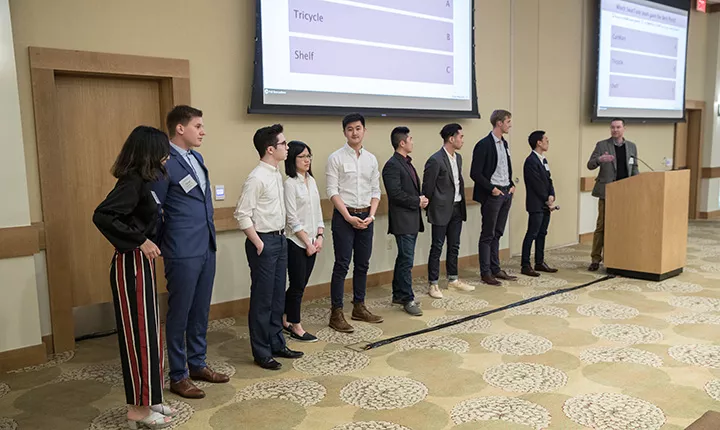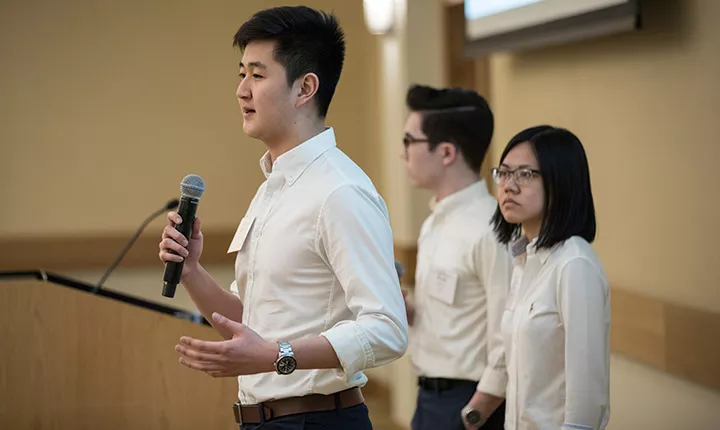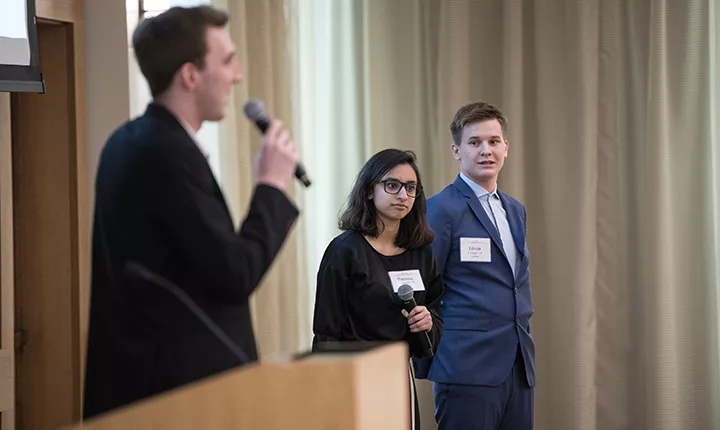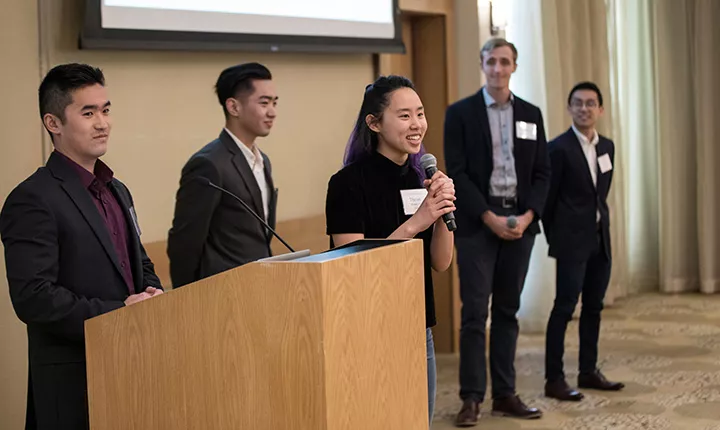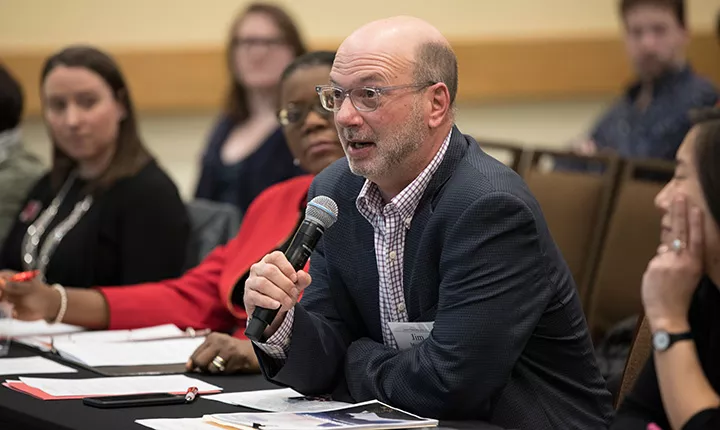Team Shelf, offering a curated second-hand shopping experience for millennials, was the judges’ choice at the final round of the 6th annual SwatTank competition last Friday.
Before a large crowd at The Inn at Swarthmore, the team of Min Zhong ’19, an Honors economics major from Alexandria, Va., Sam Shih ’19, a computer science major from South San Francisco, Calif., and Kyle Yee ’19, an Honors computer science and physics major from Melrose, Mass., impressed the panel of three judges with their solution to the quandary of what to do with unused clothes. The Shelf platform empowers users to get their clothes cleaned, listed, and priced — an easy and profitable alternative to the clothes languishing in a closet or being tossed.
“I think our presentation succeeded because we were well prepared and thoroughly discussed our competitors in the market,” says Shih. “We worked through every use case of our business model together and strongly defended our value propositions and our cost structure and revenue streams.”
The team behind CairWare earned second place as well as the audience-choice Best Pitch Award. Presented by Paroma Nandwani ’18, an political science and economics major from Kolkata, India, Sam Gebicke-Kerr ’18, an economics major from Inverness-Shire, Scotland, and Istvan Cselotei ’18, an economics and Chinese major from Budapest, Hungary, CairWare is designed to work with airline companies and their food suppliers to create made-to-order dishware that is sustainable, more compact, and cheaper.
Taking third place was Team Tricycle, led by Jason Jin ’20, a computer science and cognitive science special major from Union City, Calif., Henry Han ’20, a computer science and cognitive science special major from Bellingham, Wash., Kastan Day ’20, a computer science major from Seattle, Wash., Theint Kyaw ’19, a computer science and art major from Yangon, Myanmar, and Eric Wang ’18, a computer science major from Portland, Ore. Their concept includes a self-sorting trash can that uses computer vision and machine-learning techniques to property classify trash and automatically move it to the right bin.
Now in its sixth year, SwatTank aims to equip students with the tools they need to become successful entrepreneurs by developing a co-thinking space where students with creative ideas can come together and talk about development and feasibility; a starting point where students with little or no experience in business can learn the basics of entrepreneurship; resources such as alumni mentors with experience in business and entrepreneurship; and skill building such as public speaking and teamwork skills
“Every year SwatTank has shifted in some way, following the cycle of innovation working through many iterations,” Katie Clark, director of the Center for Innovation and Leadership (CIL), told the SwatTank crowd. “This year the biggest change is in the number of student participants — we had nearly 60 students on 18 different teams,” double the size of last year’s cohort.
"I’d like to take a moment to celebrate the teams who put in an enormous amount of time and work into their projects and pitched their ideas,” during the first round in February, Clark added, prompting applause for the Apella, Bridge Builder, Lemons, MySurge, Oleum, Rock, and Swift teams.
This year’s judges were Tomoko Sakomura, associate dean of academic affairs and associate professor of art history; Jim Marks ’85, president and CEO of WealthHub Solutions; and Sharmaine Bradham Lamar, general counsel and assistant secretary of the College.
Mike Wham ’04, principal at Ajungo.com, moderated this year’s event and Steve Dean ’11 (Shelf), Nancy Marie Crickman ’82 (CairWare), and Matthew N. Murphy Garmur ’01 (Tricycle) served as alumni mentors.
Immediately following the SwatTank Innovation Competition was the Jonathan R. Lax '71 Networking Reception. Since 2003, the College has honored Lax's entrepreneurial spirit and practical nature by bringing together intellectual discussion with pragmatic conversations about starting and sustaining an entrepreneurial venture.
Learn about Swarthmore’s impact on the local and global community at lifechanging.swarthmore.edu.
